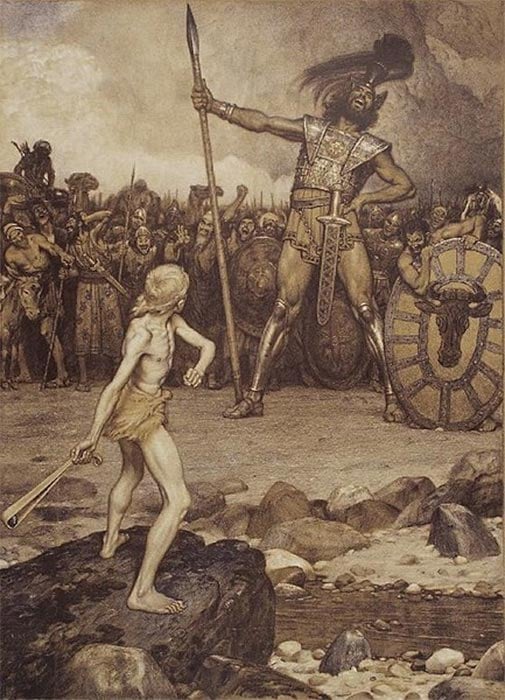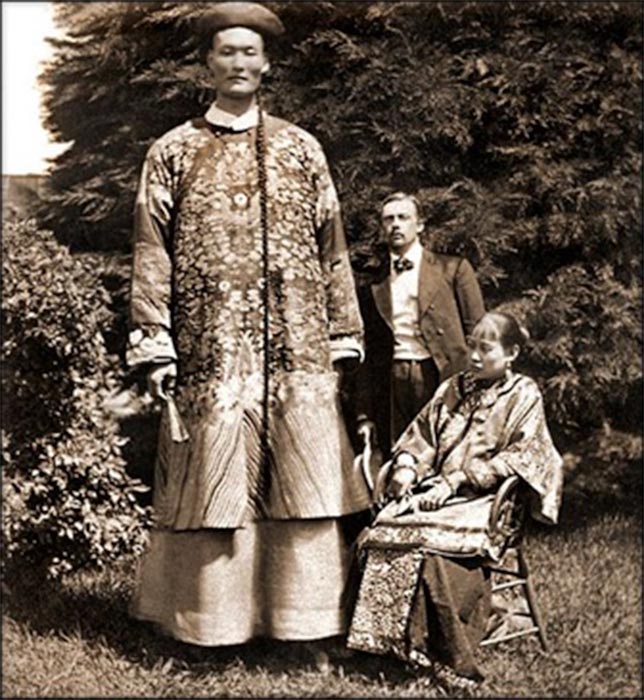
Measuring Up Real World Archaeological Giants
Strabo, Philostratus and Pliny all wrote about mythological giants: Antaeus, Ilio son of Hercules, Orestes, Cyclops and many others, and one of the most common components of creation myths found in ancient cultures from Peru to China and Iceland to Egypt is the inclusion of prehistoric races of giants who first inhabited indigenous territories. In 2019, Dr. Marco Romano from the University of Roma in Italy, published a paper in the International Journal of Paleobiology highlighting that one of the determining factors influencing the myths about giants, was the discovery of “large vertebrate bones (largely Cenozoic), initially interpreted as the remains of giant humans.” (Cenozoic era occurred circa 66 million years ago). His article casts serious doubt on the belief of a faction of modern researchers that giants actually roamed the planet in ancient times.

David faces the giant Goliath in this lithograph by Osmar Schindler (1888). (Public Domain)
However, researchers should take care not to confuse the mythical giants with the remains of really tall people in history, and it is not an indulgence in fringe archaeology to review the taller than average people who dominated indigenous peoples across the globe. Whether one believes it or not, such a review can be achieved with no mention of Smithsonian cover-ups or archaeological conspiracies.

The Cardiff Giant was one of the most famous hoaxes in American history made by P. T. Barnum and displayed at the Bastable in Syracuse, NY, circa 1869. It is currently on display at The Farmers' Museum in Cooperstown, New York. (Public Domain)
The Giant of Neolithic China
In 2019, according to reports from the People’s Daily Online, archaeologists at the Jiaojia village in the Zhangqiu District, China, excavated more than 100 ancient houses, 200 graves and around 20 sacrificial pits. What shocked the archaeologists was the discovery of graves containing what they called: “giant human forms with unusually tall and strong bones” measuring up to six foot three inches tall, (1.9 meters) which is almost a foot taller than anybody else who had lived at the time, and if this wasn’t mysterious enough the skeletons dated to 5,000 years ago.
Belonging to a late Neolithic Civilization located near the lower reaches of the Yellow River, in a November 2019 article published in Archaeology-World, Dr. Fang Hui, head of Shandong University’s School of History and Culture, states that based on the bone structure of one of the skeletons, his height would have exceed 1.9 meters, or 6.2 feet, and according to 2015 reports the average height of men in Shandong, at 18 years old, averaged 5.75 feet compared to the national average of 5.64 feet.
(Difference of 27 centimeters)





